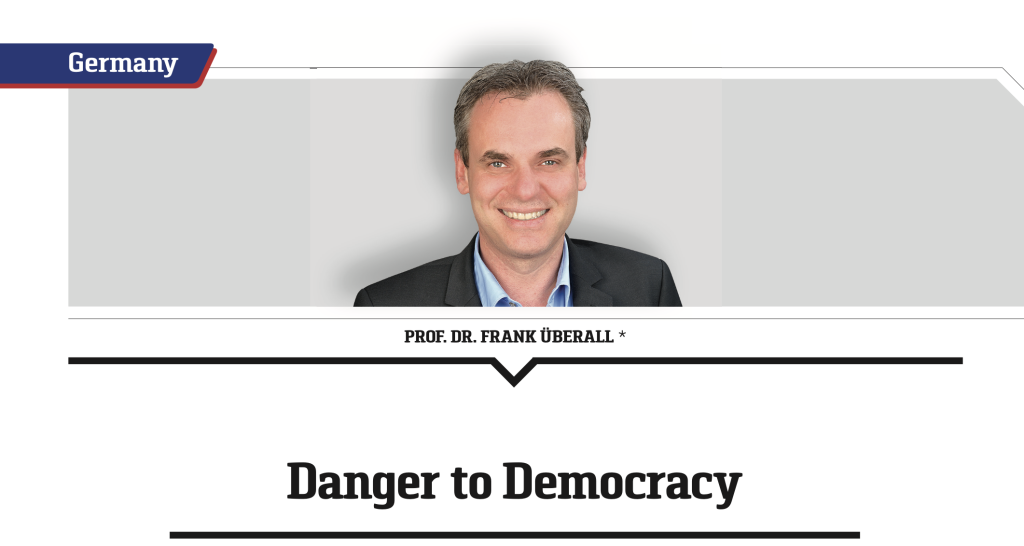Loudly typing on a mechanical typewriter, time-consuming research in an archive basement with dusty documents, a fixed editorial deadline – That’s how my professional life began more than three decades ago. There were no cell phones, no computers and certainly no digital cameras. Like it or not, editorial jobs are increasingly shifting to the Internet. Journalists and media organizations must adapt to it.
In the process, it should be remembered that the basic concept of journalism is to inform and enlighten society. This is becoming increasingly difficult because people are using more and more various media channels every day. Many younger people even state in surveys that they consume their news almost exclusively on social networks. There is then often hardly any differentiation between reliable, editorially produced offerings and those that are in fact advertising or disinformation. This is dangerous for democracy and shows how important the teaching of media competence is and will remain.
The media houses that cling solely or preferably to time-honored business models will not survive. The demise of the German magazine publishing house Gruner + Jahr is a case in point. It is now a matter of thinking and organizing journalism in multimedia terms. This is not simply about digitalization. It is not a panacea to simply put content on the Internet, even if that comes with a “paywall.” That alone will not be a business model in the long run. It takes more than that.
The way of working in journalism that we should reach now should be: In the first step, the content must be researched to a high standard of quality; secondly, the “playout channels” must be selected. A video on social networks works differently from a TV report, a podcast differently from current radio coverage, a quick news item on the Internet differently from an in-depth reading text. However, the separation of those are becoming increasingly blurred. This in turn leads many media companies to impose a blanket obligation on media professionals to “play” all channels.
This is a problematic misunderstanding that is usually based solely on an iron will to save money. Instead of constantly saving on employees and product, we need to invest in contemporary “forms of presentation”. This also includes the division of labor. Not everyone is equally good at all forms of presentation. Journalism education must provide an understanding of audio, video and text. But then you have to concentrate on what you do best, constantly train yourself and practice cooperating with other experts.
Stephan Russ-Mohl and Sebastian Turner describe it as “domain competence” to fill the channels skillfully, both in terms of content and technology. The British Guardian, for example, has shown that such a cross-media strategy can work. The necessarily short posts on Instagram and the links they provide also encourage young people to want to know more – and the number of paid digital subscriptions has increased significantly as a result.
Ultimately, it will come down to the credibility not only of the media brands, but also of the journalists. In wide circles, it was and still is frowned upon for media professionals to put themselves in the spotlight. Presenting contributions in the “I-form” is seen as excessive personalization, as exaggerated self-promotion. In the sense of journalistic “influencers,” however, in the future it will also be a matter of standing by one’s research and portrayals as a person, which makes a certain degree of self-presentation in public necessary.
Prof. Dr. Frank Überall is the Federal Chairman of the German Journalists’ Association (DJV). He also works as a freelance journalist and teaches and researches journalism and social sciences at the HMKW University of Media, Communication and Business in Cologne.

